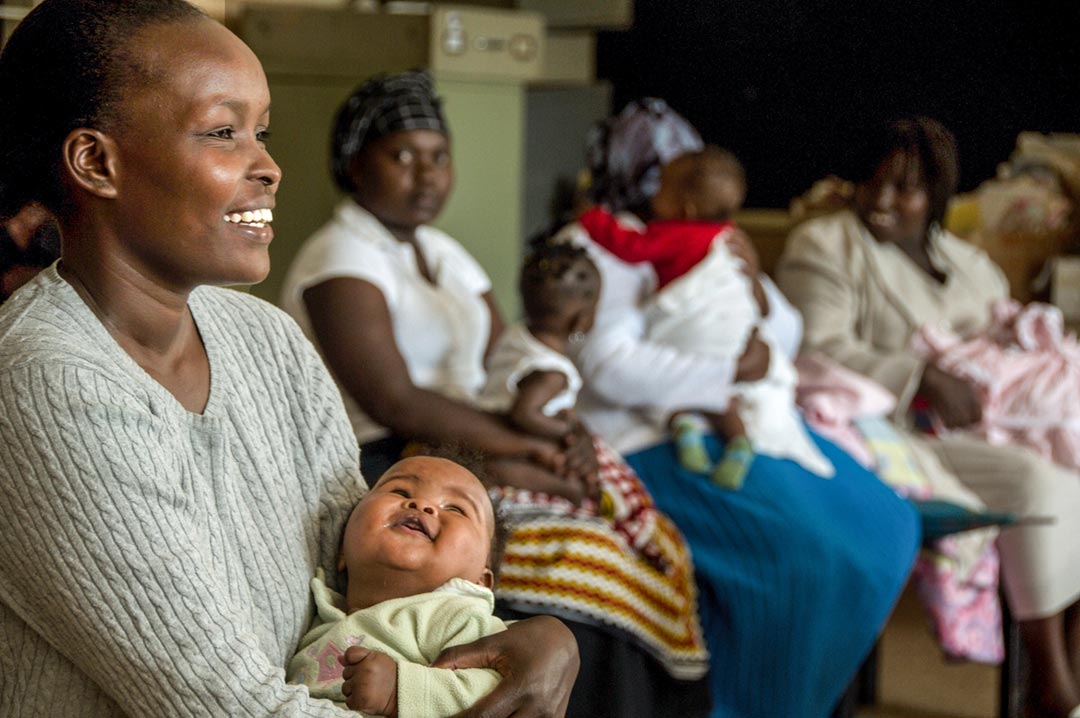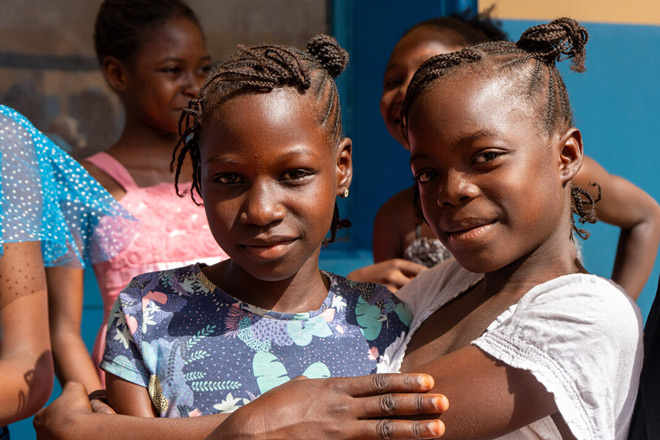2024 African Vaccination Week: 5 key priorities to get Africa’s post-pandemic health systems back on track
Africa Vaccination Week is an annual event established 13 years ago and endorsed by African Union member states. It presents a unique opportunity for countries in the Africa region to campaign for strengthened and effective immunisation delivery systems.
- 29 April 2024
- 5 min read
- by Chioma S. Nwachukwu , Kelechi Uzor , Edwinah Orowe , Amal Abikar , Twite Mulunda

Led by the World Health Organization's Regional Office for Africa, Africa Vaccination Week is an important event to ensure that vaccination remains high on the political and policy agendas of all countries. In addition, this week highlights other initiatives that integrate routine immunisation into the broader primary health care system, such as maternal health care and nutrition.
Africa accounts for 65% of Gavi’s investment. This equates to 438 million unique children immunised, which has averted more than 11.3 million deaths. In 2022 alone, we were able to reach more than 28 million unique children in Africa.
For this year's Africa Vaccination Week, we highlight five key areas that national and sub-national governments in Africa should prioritise for optimal immunisation delivery.
1. Reaching zero-dose children is key
With 8.3 million zero-dose children – children who receive no basic vaccines – living in Africa, national immunisation programmes must be at the forefront of ramping up political advocacy for reaching these children with life-saving vaccines.
This includes collaborating with global partners such as Gavi to strengthen primary health care systems, sustain community demand and leverage innovation to deliver vaccines in hard-to-reach areas and missed communities.
Furthermore, there is a strong link between zero-dose children and multi-dimensional poverty – with missed communities often deprived of other basic services amid glaring socio-economic and gender disparities. Nearly two thirds of zero-dose children in Gavi-supported countries live in households surviving on less than US$ 1.90 per day, the international poverty line.
Consequently, countries in Africa should leverage a multi-sectoral approach to reaching zero-dose children – including optimising investments in education and maternal services.
2. Sustaining immunisation financing should remain a top priority
Building on gains in immunisation delivery post-COVID-19 requires a collective effort to raise global and domestic resources for immunisation programme financing. This will strengthen Gavi's goal to reach zero-dose and under-immunised children, as vaccines remain the most powerful and cost-effective tool to protect communities from infectious diseases.
A study encompassing 73 Gavi-supported countries reveals a remarkable return on investment for immunisation efforts. From 2021 to 2030, for every US$ 1 spent on immunisation an impressive US$ 21 is saved in health care costs, lost wages and lost productivity attributable to illness and death. When we factor in the value individuals place on lives saved by vaccines – which includes not only the economic savings but also the broader societal benefits of longer and healthier lives – the return on investment soars to an estimated US$ 54 for every US$ 1 spent.
According to WHO, vaccines provide gains that go beyond improved individual and population health, including "averting medical costs and reducing time spent by parents and health care workers caring for sick children."
3. Strengthening primary health care systems will remain a key component of sustainable immunisation programming
Given the importance of primary health care systems in delivering vaccines at the community level, African countries must prioritise strengthening these systems. But this goes beyond delivering routine immunisation: strengthened primary health care plays an important role in pandemic preparedness, prevention and response.
Increasing the capacity of primary health care systems to effectively deliver robust laboratory testing and surveillance at the community level is an important component of identifying pathogens that can spread and cause outbreaks.
In addition, strong and resilient primary health care systems are important in building confidence and trust in health services and vaccines at the community level. By strengthening primary health care at the community level, member states in the African Union can respond effectively to global health threats.
4. Strong focus on collaboration to achieve an outsized impact
Since its inception in 2000, Gavi has helped bridge the global vaccine equity gap by immunising over 1 billion children and halving child mortality in lower-income countries. By aggregating and co-financing demand for vaccines from low-income countries, the Vaccine Alliance leverages its unique model to achieve economies of scale and reduced transaction cost.
The success of local manufacturing will depend on the preferential demand for African-made vaccines by African Union member states themselves.
This approach encourages manufacturers to reduce the price of vaccines in a sustainable manner for low-income countries in return for long-term, high-volume and predictable demand. Specifically, Africa accounts for 65% of Gavi's investment. This equates to 438 million unique children immunised, which has averted more than 11.3 million deaths. In 2022 alone, we were able to reach more than 28 million unique children in Africa.
5. Advancing local vaccine manufacturing is important
In the wake of the COVID-19 pandemic, during which many countries in Africa struggled to access life-saving vaccines, Gavi and the broader alliance is rallying behind Africa CDC's vision for African vaccine manufacturing. Their ambitious goal aims to have Africa produce 60% of its vaccine needs on the continent by 2040.
To support this vision, Gavi's innovative finance instrument, the African Vaccine Manufacturing Accelerator (AVMA) will provide up to US$ 1 billion of support to eligible manufacturers producing Gavi-supported vaccines on the African continent. Carefully targeted incentives will help this nascent industry scale to a point where it can sustainably support routine and emergency vaccine supply in the long term.
The success of local manufacturing will depend on the preferential demand for African-made vaccines by African Union member states themselves. Gavi's next five-year strategy will also play a critical role here by strengthening health systems to boost the immunisation rates for existing vaccines, as well as paving the way for impactful new vaccine introductions against diseases like malaria, HPV and TB – all of which could become possible future markets for African-made vaccines.
Since the launch of the Expanded Programme on Immunization (EPI) 50 years ago, vaccines have saved millions of lives. To ensure that the successes of the past 50 years are sustained in the next 50 years, we must continue to make investments in vaccines and in immunisation programmes. Every new child deserves life-saving vaccines – regardless of socio-economic status or geographic location.






